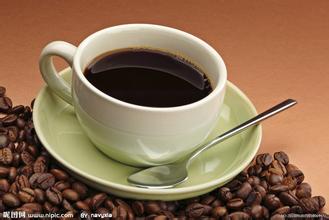Introduction to the characteristics of Colombian Hope Manor Coffee with sour, bitter and Sweet flavors
Colombia's favourable climate provides coffee with a true "natural pasture". Coffee trees in Colombia are mainly cultivated in the Andes mountains, on steep slopes up to 1,300 meters above sea level, where the annual temperature is about 18 degrees Celsius, the annual rainfall is 2000 to 3000 mm, the north latitude is 1 °-11 ° 15, the west longitude is 72 ° -78 °, and the specific altitude range can exceed 2.000 meters. By a particular combination of various factors, latitude, altitude, soil, plant origin of species and variety of coffee making in coffee growing areas of Colombia, climate in coffee growing areas and rain patterns resulting from dual paths of tropical convergence, changing topography throughout the day, luminosity, favorable temperature ranges throughout the year, distribution of moderate and rainwater, and some common cultural practices including selective harvesting and transformation processes, including washing and drying. Very suitable for coffee growth, mild climate, humid air, and can be harvested regardless of season. That's why Colombia coffee is so good. The pure taste of Colombia coffee comes from Colombia's natural environment, which has the most favorable conditions for coffee growth. But beyond that, the hard work of local growers is inseparable. In Colombia, coffee is cultivated on 1.07 million hectares, there are about 302,000 coffee plantations in the country, and 30 to 40 per cent of the rural population depends directly on coffee production. Although Colombia has many farms, they are not large. Each farm has an area of only about 2 hectares, and more than 80% of coffee plantations have only about 5000 coffee trees, with an average of 3000. Thus, agriculture in Colombia is of the small farm type. Locals plant tall trees or banana trees around coffee trees. During the seedling stage, coffee trees are sheltered to ensure a cool and humid environment for coffee growth. Due to the humidity in the coffee forest, the temperature difference is small, the coffee beans mature slowly, which is conducive to the accumulation of caffeine and aromatic substances, so the coffee quality is the best. Colombia coffee is divided into more than 200 grades, and the regionality of coffee is very strong. Colombia beans are SUPERMO, followed by EXCELSO; however, specialty coffee above 18 beans (18/64 inches in diameter) can only be included in specialty coffee. Colombia coffee has a balanced flavor and a smoother taste, just like a gentleman in coffee. It has a wide range of producing areas, but the coffee in the central mountains is the best and the texture is thick. The most famous producing areas are Medellin, Armenia and Manizales, which are commonly referred to as "mam". The taste of "narino" is delicious and the quality is very good. It is said that starbucks coffee company is the pride of Colombia people, and the few things Colombia people like to talk about most, besides their football, which once ranked among the best in the world, is their proud coffee. Coffee in Colombia is a pleasure, not only three times a day essential, streets are full of cafes, customers from morning to night, full of seats. Coffee shops do not say instant, now cooked and sold, miss with delicate porcelain bowl poured, respectfully sent to customers in front of their own free sugar. Indoor aroma pervades, sweet and delicious bowl, slowly taste endless aftertaste, no wonder local people each addicted to it.
At Andicchio University, every office has a small card that says "Coffee Break" and is likely to be hung at the door if the owner is out for a while. This reason seems to be justified, even for executives on duty. At any restaurant in Medellin, coffee is the free drink served to customers after dinner. [1]
Coffee is so deeply ingrained in Colombia that it has become indispensable for writers like García Marquez. One Hundred Years of Solitude, for example, which won him the Nobel Prize for Literature, has coffee in every chapter. Chapter 5 A dose of laudanum is added to the bride's coffee in order to prevent the wedding of the hero, Colonel Aureliano Buendía. Chapter 6 shows the colonel's wonder by describing him as "once having enough strychnine in his coffee to poison a horse, he survived

Important Notice :
前街咖啡 FrontStreet Coffee has moved to new addredd:
FrontStreet Coffee Address: 315,Donghua East Road,GuangZhou
Tel:020 38364473
- Prev

Full-bodied, mild taste of Costa Rican Goddess Manor Coffee Flavor production area
Costa Rica is located in the volcanic belt of the low latitudes of Central America, with the central plateau and mountains about 800 to 2000 meters above sea level. The climate here has two obvious dry and wet seasons. The harvest period is from November to March of the following year, which coincides with the dry season, and coffee fruits of high quality and consistent maturity can be harvested. The dry season also provides sunshine conditions for the sun treatment, in the rainy season.
- Next

Moderate acidity and delicious fragrance introduction to the characteristics of coffee flavor and taste in Niagara Heavenly Manor
Since July 1927, Augusto. Cesar. Sandino led the people in a guerrilla war against the US occupation, forcing the US military to withdraw in 1933. On February 21, 1934, the Commander of the Nicaraguan National Guard, Anastacio. Somocha. Garcia assassinated Sandino at the behest of US President Roosevelt. He became president in 1936 and has been pro-American for more than 40 years since then.
Related
- Does Rose Summer choose Blue, Green or Red? Detailed explanation of Rose Summer Coffee plots and Classification in Panamanian Jade Manor
- What is the difference between the origin, producing area, processing plant, cooperative and manor of coffee beans?
- How fine does the espresso powder fit? how to grind the espresso?
- Sca coffee roasting degree color card coffee roasting degree 8 roasting color values what do you mean?
- The practice of lattes: how to make lattes at home
- Introduction to Indonesian Fine Coffee beans-- Java Coffee producing area of Indonesian Arabica Coffee
- How much will the flavor of light and medium roasted rose summer be expressed? What baking level is rose summer suitable for?
- Introduction to the characteristics of washing, sun-drying or wet-planing coffee commonly used in Mantenin, Indonesia
- Price characteristics of Arabica Coffee Bean Starbucks introduction to Manning Coffee Bean Taste producing area Variety Manor
- What is the authentic Yega flavor? What are the flavor characteristics of the really excellent Yejasuffi coffee beans?

